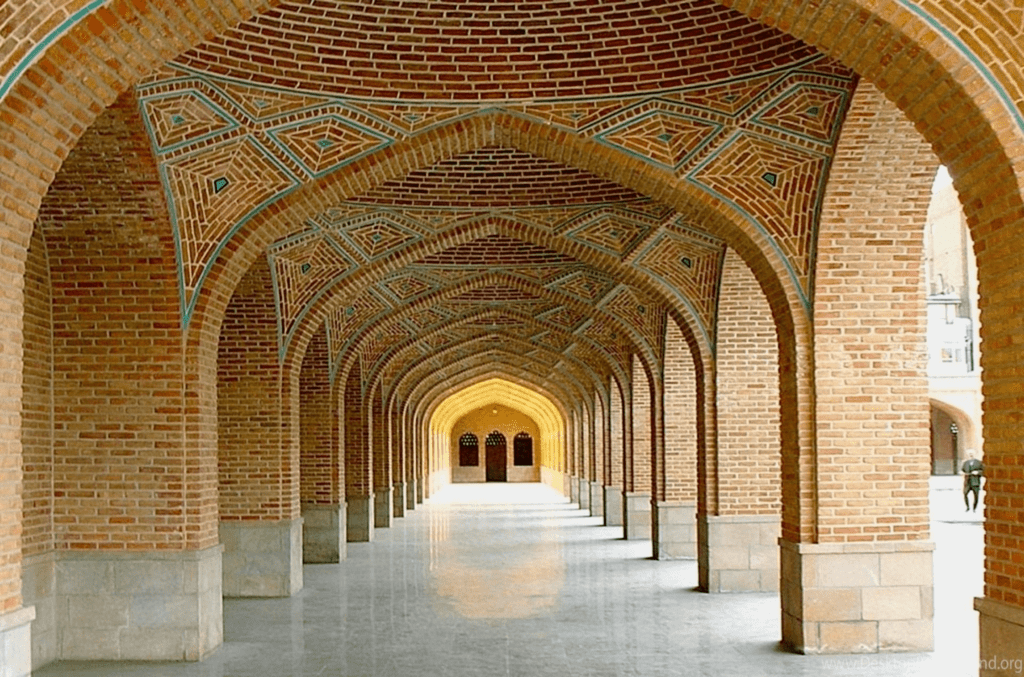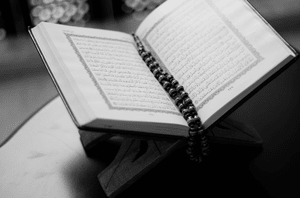When we hurt someone, we hope for forgiveness, forbearance and another chance. Humans can be forbearing, but their forbearance may be because they feel they have no choice, feel weak or want to avoid confrontation. Our Lord, on the other hand, who is free of need and upon whom all the creation relies, nobly describes Himself as al-Ḥalīm: The Most Forbearing.
Forbearance isn’t merely about restraining your anger. It’s about staying calm with those who anger you despite being able to dominate and exact revenge. Forbearance is, therefore, an attribute of the strong, not the weak, and this is why Allah attributes the quality to Himself.
Allah al-Halim
Imām al-Ghazālī (raḥimahullāh) defined Allah’s Name al-Ḥalīm as the One “who observes the disobedience of the rebellious and notices the opposition to the command, yet anger does not incite Him nor wrath seize Him, nor do haste and recklessness move Him to rush to take revenge, although He is utterly capable of doing that.”
Take a moment to visualize the world. Observe the array of people living on its surface from the east to the west, and reflect on the innumerable sins that are being committed every minute. Consider all the injustice, murders, fraud, and theft that continues to occur around the world. Compound this image in your mind with all the kufr (disbelief in Allah) that occurs across the earth. Now imagine a world where we instantly faced the consequences of our actions. Who amongst us would survive a terrible fate? Who amongst us would not be ruined?
From that image, we get a glimpse of how forbearing Allah is towards us, out of His mercy. Allah (ʿazza wa jall) says:
وَلَوْ يُؤَاخِذُ اللّٰهُ ٱلنَّاسَ بِظُلْمِهِمْ مَّا تَرَكَ عَلَيْهَا مِنْ دَآبَّةٍ وَلَٰكِنْ يُّؤَخِّرُهُمْ إِلَىٰٓ أَجَلٍ مُّسَمًّى
“If Allah were to punish people (immediately) for their wrongdoing, He would not have left a single living being on earth. But He gives them respite for an appointed term” (16:61).
Allah giving us respite is one of His greatest blessings upon us. He does not punish us immediately, but rather gives us time so that we turn back to Him with sincere repentance, and perform good deeds. Allah not only delays punishment but sends us subtle reminders so that we turn back to Him.
Similarly, the heavens and the earth seek permission to destroy the inhabitants of the earth due to the magnitude of their sins. However, Allah does not allow them to do so, out of His forbearance:
إِنَّ اللّٰهَ يُمْسِكُ السَّمٰـوٰتِ وَٱلْأَرْضَ أَنْ تَزُوْلَا ۚ وَلَئِنْ زَالَتَآ إِنْ أَمْسَكَهُمَا مِنْ أَحَدٍۢ مِّنۢ بَعْدِهِۦٓ ۚ إِنَّهُۥ كَانَ حَلِيْمًا غَفُوْرًا
Indeed, Allah keeps the heavens and the earth from falling apart. If they were to fall apart, none but Him could hold them up. He is truly Most Forbearing, All-Forgiving (35:41).
Allah’s forbearance (ḥilm) extends to not just delaying punishment, but also to delaying the recording of our sins. The Prophet ﷺ said, “The scribe (angel) on the left delays registering the sin of a Muslim for six hours. If he repents (within these six hours), and seeks Allah’s forgiveness, they drop it off. If he doesn’t, they write it down as a single sin” (Ṭabarānī).
However, this does not mean that we can become complacent and think that because Allah is Forbearing and Merciful, we can continue sinning.
Some of us may have experienced what we feel is a clear punishment from Allah for a sin we committed. This does not contradict the fact that Allah is al-Ḥalīm. This is because Allah’s forbearance is always purposeful and merciful. What may seem as ‘punishments’ in this world are actually blessings in disguise, as He, the Most Wise, wants to alert us that we are on the wrong path and we need to return back to Him.
Constant Reflection on Allah’s Forbearance
We should reflect on the extent of Allah’s forbearance in our lives; and to all of His creation, especially by reflecting on the Qur’ān. We all recite the Qur’ān, but how often does one āyah lead us to deepening our understanding of who Allah is? Qatādah (raḥimahullāh) recited the āyah:
اِذْهَبَآ إِلَىٰ فِرْعَوْنَ إِنَّهُۥ طَغَىٰ . فَقُوْلَا لَهُۥ قَوْلًا لَّيِّنًا لَّعَلَّهُۥ يَتَذَكَّرُ أَوْ يَخْشَىٰ
“Go, both of you (Mūsā & Hārūn), to Pharaoh, for he has truly transgressed all bounds. Speak to him gently so that he may take heed or he may fear Allah” (20:43-44)
He then remarked, “How Perfect You are My Lord! How Forbearing You are! How Magnificent You are! If this is Your forbearance with Pharaoh who said: ‘I am your supreme lord!’, then how will Your forbearance be with a slave who says: ‘How Perfect is my Supreme Lord!”
The Forbearance of the Prophets and Righteous
Forbearance (ḥilm) is a character trait embodied by the Prophets (ʿalayhimu-salām) and the righteous. When our beloved Prophet ﷺ was assaulted by the people of Makkah, out of his beautiful character, love and wisdom, he chose to endure it with forbearance, patience and forgiveness. He never considered revenge, despite having the option to do so, and instead asked Allah to forgive and have mercy on those who harmed him.
We see a beautiful display of his forbearance when he ﷺ travelled to the city of Ṭā’if to call people to Allah. Along with rejecting and mocking him, some people instructed their children to pelt him with stones. The Prophet ﷺ was so badly injured that he fell unconscious. When he re-gained consciousness, Allah sent to him the angel of the mountains who said, “O Muḥammad…If you wish, I will make al-Akhshabayn (two huge mountains located at the outskirts of Makkah) fall on them.” The Prophet ﷺ replied, “Rather, I hope that Allah will bring forth from their descendants who will worship Him Alone, and they will not associate any partners with Him” (Bukhārī).
Forbearance is dearly loved by Allah. Allah praises Ibrāhīm (ʿalayhis-salām) in the Qur’ān twice, by describing him as ‘forbearing (ḥalīm)’. And when Ibrāhīm (ʿalayhis-salām) made duʿā’ that Allah grants him children, Allah responded to his duʿā’: “So We gave him good news of a forbearing son” (37:101). Similarly, the Messenger of Allah (saw) said to Al-Ashajj ʿAbd al-Qays, “Indeed you have two qualities which Allah loves: forbearance and patience” (Muslim).
Connect to al-Halim
1. Love Allah al-Ḥalīm
Reflecting on the forbearance of Allah should make our hearts melt out of love for Him. No one knows the extent of our sins as much as He does. No one is more capable than Him in punishing us, and yet no one is more forbearing and forgiving with us than Him. Allāhu Akbar!
2. Always turn to Him in repentance
Through reflecting on our daily lives, we realise that Allah is aware of our many sins and shortcomings, yet we still receive His forbearance and His kindness.
Recognizing the forbearance of Allah should alert us to the fact that we need to change, and not take His forbearance for granted. It is the attribute of Allah’s forbearance that provides us the chance to even be able to change. Thus, we should constantly turn to Him and repent before it is too late.
3. Thank and praise al-Ḥalīm for His forbearance
Allah al-Ḥalīm manifests His forbearance upon us when we sin and are heedless. Even without our gratitude and acknowledgement, we are already subject to the mercy and forbearance of Allah. Imagine the blessings that await us if we expressed gratitude and praised Him for His ḥilm!
4. Be forbearing and patient with others
If we want to be recipients of Allah’s forbearance, we should embody this same trait in our dealings with His creation. A forbearing person is calm, collected, and undisturbed with others’ mistakes. He makes excuses for others’ shortcoming, forgives easily, smiles at those who frown, joins family ties, and withholds insults and the urge to retaliate, despite having the ability and right to retaliate. He is gentle and has a big heart.
A point of caveat: we must exercise forbearance with wisdom and for the greater good. It should not be used as an excuse to allow abuses to continue, or avoid having difficult conversations, or abandoning moral boundaries, or neglecting the pursuit of justice. Defending oneself, and the Ummah, from abuse and tyranny is in fact an obligation; and even retaliating when it is likely to have a beneficial outcome is recommended.
Forbearance and self-restraint can be learned and cultivated through practice, even if by nature we may be quick to react. The Prophet ﷺ said, “Knowledge comes through learning and forbearance comes through practicing forbearance” (Ṭabarānī).
5. Ask al-Ḥalīm to forgive you
We should ask Allah through His Name ‘al-Ḥalīm’ to forgive us, conceal our faults and protect us from punishment. Similarly, we can supplicate with the duʿā’ our beloved Prophet ﷺ would recite when he encountered a difficulty:
لَا إِلٰهَ إِلَّا اللّٰهُ الْعَظِيْمُ الْحَلِيْمُ ، لَا إِلٰهَ إِلَّا اللّٰهُ رَبُّ الْعَرْشِ الْعَظِيْمِ ، لَا إِلٰهَ إِلَّا اللّٰهُ رَبُّ السَّمٰـوٰتِ وَرَبُّ الْأَرْضِ وَرَبُّ الْعَرْشِ الْكَرِيْمِ
There is no god worthy of worship but Allah, the Magnificent, The Forbearing. There is no god worthy of worship but Allah, Lord of the Magnificent Throne. There is no god worthy of worship but Allah, Lord of the heavens, Lord of the earth, Lord of the Noble Throne. (Bukhārī)
We ask Allah, al-Ḥalīm to extend His forbearance to us so that it increases us in faith, gratitude, and obedience. We ask al-Ḥalīm to grant us the quality of forbearance, seeking His pleasure alone and becoming people of mercy.






